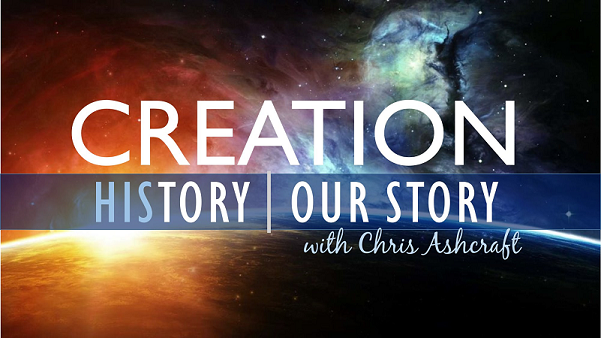Atheism
The greatest trick the devil ever pulled was convincing the world he didn't exist.
Atheism is a philosophical denial of the existence of God.[1] A more active stance affirms the nonexistence of God, and proposes positive belief rather than mere suspension of disbelief.[2] Materialism (the disbelief in the spiritual realm), naturalism, the theory of evolution, and humanism stem inexorably from this world view. Atheism is a rejection of claims for the existence of God.[1] A more active stance affirms the nonexistence of God, and proposes positive belief rather than mere suspension of disbelief.[2] Atheism is derived from the Greek word "atheos" - "a" meaning no or without and "theos" meaning God.
Contents
History
Ancient
Ancient history of atheism tends to begin with the Hellenistic period ushered in by Alexander the Great, and is of general prominence within the history of atheism. The epicurean historian of various philosophical schools Philodemus (110 to 35 BC) recognized essentially three schools of thought. Firstly those who did not know if gods existed (agnosticism), those who explicitly denied gods existing and then the implicit yet still clear denial. It is this classical time period, as it is labeled, that shows a type of soft atheism. The sketch during antiquity later drawn out and developed after the middle ages.
Anaxagoras (ca. 500–428 b.c.) settled in the heart of intellectual life in Athens, Greece and actually challenged the divine presupposition the Greeks had about nature. In other words Anaxagoras challenged the Greek view that the Sun was divine and essentially theorized it was molten metal.[3] It may not sound like much but within the history of atheism it is an astonishing turning point toward atheistic philosophy.
Modern
New Atheism
During the twenty-first century a new type of atheism is being characterized by prominent and popular spokesman, philosophers and scientists alike. Richard Dawkins, Sam Harris, Daniel Dennett, and Christopher Hitchens, to name a few, are the most vocal. They often refer to themselves in mocking terms as the four-horsemen of the new atheism.[4] What specifically sets new atheism apart from atheism of antiquity or twentieth century atheism even, is that new atheism is undiplomatic in approach. The new atheists are very anti-supernatural, and thus anti-religious, considering scientism the only means to knowledge. As an epistemology scientism is propped up by new atheists to differentiate between knowledge that is just a belief or true belief and what is justified true belief. It is from this vantage point the new atheists tend to rail against religious and theological language as lacking any substantive meaning because it does not contain meaning that can be empirically verified. Maintaining a consistently hostile and militant tone within writings and debates against Christianity specifically and theism more generally the obvious metaphysics of new atheism is usually that of strict materialism and naturalism.
In addition, recently there have been a number of attempts by the new atheists to redefine the meaning of atheism in order to shift the burden of proof in relation to the question of the existence of God. However they may define the burden of proof, philosophically speaking the burden of proof is clear for a successful defense of atheism.
“ Positive atheism in the broad sense is, in turn, disbelief in all gods, with positive atheism in the narrow sense being the disbelief in a theistic God. For positive atheism in the narrow sense to be successfully defended, two tasks must be accomplished. First, the reasons for believing in a theistic God must be refuted; in other words, negative atheism in the narrow sense must be established. Second, reasons for disbelieving in the theistic God must be given.[5] ” Epistemology of Atheism
Atheist critics of Christianity maintain the false basis that faith gives no room for scientific evidence. What is usually implicit in that line of argument is the assumption that philosophy is not necessary. Scientific methods shed light into all areas of life with no other avenue of interest, like theology or philosophy. Christians adopt a scientific view of reality as well, however the constant and consistent reliance on only a scientific epistemology, often called scientific naturalism, contains very restrictive views of the world. Therefore the philosophies that inform the atheist are taken with a degree of healthy skepticism by the Christian or creationist. Scientific naturalism leaves no room for the mind and supernatural for the creationist and thus no room for the Holy Spirit to warrant justified true belief within the life of a Christian.
The overall most dominant epistemology of atheism and evolution regarding scientific propositions, or language meaning, are;
Contemporary Numbers
The Cambridge Companion to Atheism goes through the scholarship of the statistical analysis regarding by country, the percentage of those who self-describe as atheist, agnostic or nonbeliever. According to their top 50 list Sweden is at the top with the United States at number 44. Roughly 10% of Americans consider themselves atheist or agnostic. There also seems to be correlation between the more industrialized, secular and progressive the societies are the more that non-belief is prevalent.[6]
Atheism and Theism
It should be noted that despite American society being secular and atheistic in theory, 76.5% of Americans call themselves Christian, thus American public society underrepresents and in many cases completely disenfranchises the implementation of the majority opinion: that there is a God. In this sense, the 14.1% of American society which call themselves secularists decide policy, scientific opinion, educational course material, and many other forms of knowledge despite the fact the majority of American society believes in a higher power of some sort. This is largely due to the widespread secularist dominance of politics.[7]
Morality
Many studies have been done dealing with the possible hazy understanding of morality that atheists might have.[8][9][10] According to a study done by Barna Group, it found that atheists and agnostics in America were more likely, than theists in America, to look upon the following behaviors as morally acceptable: illegal drug use; excessive drinking; sexual relationships outside of marriage; abortion; cohabitating with someone of opposite sex outside of marriage; obscene language; gambling; pornography and obscene sexual behavior; and engaging in homosexuality/bisexuality.[11] Since Nihilism and Moral relativism are ideologies that are usually endorsed by atheists, it is not unusual that atheism could in fact lead to an increase in immorality because the concept of moral values will be so diluted, that atheists might justify and rationalize any sin.
Atheism among scientists and laypeople
The scientific community, above any other subgroup of the population, has become overwhelmingly atheistic. According to a 1998 report in Nature, a survey by Edward Larson found that,
“ among the top natural scientists, disbelief is greater than ever; almost total. ” Interestingly, the biologists in the National Academy of Sciences were found to possess the lowest rate of belief of all the science disciplines, with only 5.5% believing in God.[12] This decline in belief in biologists strongly indicates the nature of the cause, and the ability of the teaching of evolutionary biology to turn people away from a belief in God.
The views of the general population over the last couple of decades remain largely unchanged with regard to creation vs. evolution. Also the number of people becoming atheists or agnostics in the USA has not changed in the last ten years according to social researchers.[13] However, a Gallup poll found a clear trend demonstrating that higher education and belief in evolution as the source of human existence were concurrent. From these statistics it would appear that higher education, and particularly specialization in the natural sciences, will indoctrinate students into naturalism or an atheistic view of the world.[14]
Education in these naturalistic philosophies, and the pervasive teaching of evolution is almost certainly the principal influence affecting the rise of atheism in our scientific community. Evolution may be better called evolutionism as it is considered a religion by many. Evolution is the champion theory of secular humanism, and a scientific community now totally under the control of an atheistic majority. The theory of evolution is being used in an attempt to explain the origin and evolution of life on earth without a supernatural creation. These theories are being taught as fact in science classes today, and such teaching will affect the way people view the world. If they are left unchallenged, this inundation will cause belief in God as the source of life to diminish, and evolution ultimately will have the power to convince people there is no God.
Atheism and suicide
According to studies taken in 2004, being religious decreases your chances of suicide, while rejecting religion, or being atheist, increases your risk of suicide[15][16][17][18]. This is no doubt because atheism, and therefore the denial of all things sacred, can lead to assumptions of ethical nihilism and the ultimate, tragic rejection of life.[19]
Atheist Ideologies
While atheism could be said to be unorganized prior to the writings of Marx (despite some previous communists, socialists, and anarchists rejecting God), once Marx put pen to paper and essentially developed communism into what it is today, one of the main tenets, among many others, is the rejection of religion: completely, through State control of education and belief and worship.
“ Religion is the opiate of the masses. (Karl Marx) ” Atheism became an organized religion, complete with heroes, semi-gods in the form of revolutionary leaders, practices, and doctrines throughout perhaps almost every Communist nation that ever existed, and Nazi Germany.
Marx did not invent the idea of evolution, but it became an integral part to communist followers, and in the ideas of Hitler's National Socialism. An equally integral part to evolutionary theory and Social Darwinism implemented by Hitler and his fascist allies in the Balkans and Italy is the idea of "survival of the fittest", but this time it was taken to an extreme level. It fueled the Holocaust and the various genocides implemented by Hitler and his followers from 1932 or 1933 when Dachau opened to 1945 when the camps were liberated by the Allies. It gave Hitler a world-view of the Ubermensch and the Untermensch; Superhuman and Subhuman. The "Subhumans" were marked for destruction or slavery, while the German "Superhumans" became masters of Europe for the short time they had.[20]
Death rates for atheist ideological nations like the former Nazi Germany, Maoist China, Leninist-Stalinist Russia, Khmer Rouge Cambodia, Vietnam, and North Korea, among others are never going to be fully known, but there is a conservative estimate of over 100 million.[21] Nazi German genocide efforts killed tens of millions of Soviet citizens, in addition to millions of Germans, Poles, French, and nationalities throughout occupied Europe; while the Soviets killed tens of millions of their own citizens. In China, tens of millions of people were murdered or worked to death, and once the Khmer Rouge were forced out of power in Cambodia, over 25% of all Cambodians were dead or forever missing.[22]
News
- Court Says Atheism is a Religion The Seventh Circuit Court of Appeals ruled that atheism should be treated as a ‘religion. August 19, 2005
References
- ↑ 1.0 1.1 "Atheism and Agnosticism." Stanford Encyclopedia of Philosophy, Stanford University, March 9, 2004. Accessed October 12, 2008.
- ↑ 2.0 2.1 Sarfati, Jonathan. "Atheism is more rational?" (Dialogue) Creation Ministries International, September 5, 2000. Accessed October 12, 2008.
- ↑ The Cambridge Companion to Atheism, edited by Michael Martin. "Atheism In Antiquity" by Jan N. Bremmer, pg. 12-13. Cambridge University Press, 2007
- ↑ Richard Dawkins website promoting Four Horsemen
- ↑ The Cambridge Companion to Atheism, edited by Michael Martin. "General Introduction", pg. 2. Cambridge University Press, 2007
- ↑ The Cambridge Companion to Atheism, edited by Michael Martin. "Atheism: Contemporary Numbers and Patterns" by Phil Zuckerman, pg. 56-57. Cambridge University Press, 2007
- ↑ "Religious Makeup of the United States." Ontario Consultants on Religious Tolerance, August 26, 2003. Accessed October 12, 2008.
- ↑ http://www.barna.org/barna-update/article/5-barna-update/58-practical-outcomes-replace-biblical-principles-as-the-moral-standard
- ↑http://www.godandscience.org/apologetics/atheists_more_immoral.html
- ↑ http://www.godandscience.org/apologetics/atheism_determinism_morality.html
- ↑ http://www.barna.org/barna-update/article/5-barna-update/58-practical-outcomes-replace-biblical-principles-as-the-moral-standard
- ↑ Larson EJ and Witham L. "Leading scientists still reject God." Nature 394, 313 (July 23, 1998). doi:10.1038/28478 Accessed October 12, 2008. Archive copy. download PDF
- ↑ Dart, John. "Americans' belief in God is high, but nuanced." Christian Century, December 14, 2004. Accessed October 12, 2008.
- ↑ "Creation vs. Evolution II." Gallup organization, November 21-24, 1991. Accessed October 12, 2008.
- ↑ http://ajp.psychiatryonline.org/cgi/content/abstract/161/12/2303
- ↑ http://www.h-net.org/reviews/showrev.php?id=3213
- ↑ http://www.adherents.com/misc/religion_suicide.html
- ↑ NY Times, September 17, 1894, ATHEISM A CAUSE OF SUICIDE.; Dr. MacArthur Preaches on the Sin and Cowardice of Self-Destruction
- ↑ Dervic K, Oquendo MA, Grunebaum MF, et al. "Religious Affiliation and Suicide Attempt." Am. J. Psychiatry 161:2303-2308, December 2004. Accessed October 12, 2008.
- ↑ "Social Darwinism." ThinkQuest.com, 2000. Accessed October 12, 2008.
- ↑ Victims of Communism Memorial Foundation home page. Accessed October 12, 2008.
- ↑ Khmer Rouge by Wikipedia
External Links
- Theistic Critiques Of Atheism By William Lane Craig. Free registration required.
- Same Old New Atheism: On Sam Harris By Jackson Lears. April 27, 2011
- Atheism by Creation Ministries International
- New Survey: Scientists "More Likely Than Ever" to Reject God Belief by American Atheists
- The New New Atheism
- Atheism: An Intellectual Revolt or Pelvic Rebellion? by Doug Giles
- Atheism by Conservapedia
- Atheism Website run by AllAboutGod.com Inc.
- The Absurdity of Atheism by Chaim
- Militant Atheism Exposed
Gallup polls (1982-1999) addressing views of Americans on creation, evolution, theism, and atheism
Available Answers / Choices
The Creation Position: God created man pretty much in his present form at one time within the last 10,000 years. The Theistic Evolution Position: Man has developed over millions of years from less advanced forms of life, but God guided this process, including man's creation. The Atheistic Evolution Position: Man has developed over millions of years from less advanced forms of life. No God participated in this process. No Opinion.
Gallup Polls: Results Year Creation Theistic
EvolutionAtheistic
EvolutionNo Opinion 1982 44% 38% 9% 9% 1991 47% 40% 9% 4% 1993 47% 35% 11% 7% 1997 44% 39% 10% 7% 1999 47% 40% 9% 4%

More related poll data and discussions
- Beliefs of the U.S. Public and Various Faith Groups about Evolution and Creation
- Biblical Worldview Held By 4 Percent Of Adults Maranatha Christian Journal 12/5/03
- Number of Americans with No Formal Religion Increasing, Survey Finds Christianity Today Magazine - 1/9/02
- Poll: Creationism is more popular than ever by Bryce Miller
- Polls Show Change From Evolution to Creation by Eric Blievernicht
- Religious Congregations & Membership: 2000 stats by Glenmary Home Missioners
- Results of a poll conducted November 21-24, 1991 by the Gallup Organization
- The Attitude of Various Populations toward Teaching Creation and Evolution in Public Schools by Jerry Bergman, Ph.D.
- Toward the Development of an Instrument for Measuring a Christian Creationist Worldview
- Worshipers at the Secular Altar LA Times 6/17/04
- ZOGBY Poll Texas.2003 Views of Texas Residents on Teaching Evolution
 Atheism
by CreationWiki
Atheism
by CreationWiki
- Atheism
- Evolutionism
- Decline of atheism
- Agnosticism
- Secular humanism
- Naturalism
- Darwinism
- Evolution requires naturalism Response to Talk.Origins
- Evolution is atheistic Response to Talk.Origins
Creationists on Atheism
- Atheism by Conservapedia
- Atheism by Mariano, Creation Ministries International. June 11, 2009.
- Atheism by In Search of the One True Religion
- Atheism and Nihilism of Evolution by John Woodmorappe
- Atheism - Free-thinker or Non-thinker
- Atheism is more rational? by Jonathan Sarfati
- Atheism, its teaching and validity examined by CARM
- How Do Creationists Answer Their Critics by Henry Morris
- Hume, Kant, and Rational Theism by Hugo Meynell
- Refutation of Atheism by Harun Yahya
- The Atheism of the Gaps by Stephen M. Barr 1995 First Things 57 (November 1995): 50-53
- The Bible Compared to Modern Atheism
- The Holocaust- Ideas and Their Consequences by Ray Cotton
- Atheism - The New State Religion by Jerry Bergman. ICR Impact No. 257 (Nov 1994)
- The Psychology of Atheism by Paul C. Vitz
- Theism, Atheism, and Rationality by Alvin Plantinga
- Why the Burden of Proof is on the Atheist by Ralph McInerny
Creation / Christianity in the United States



